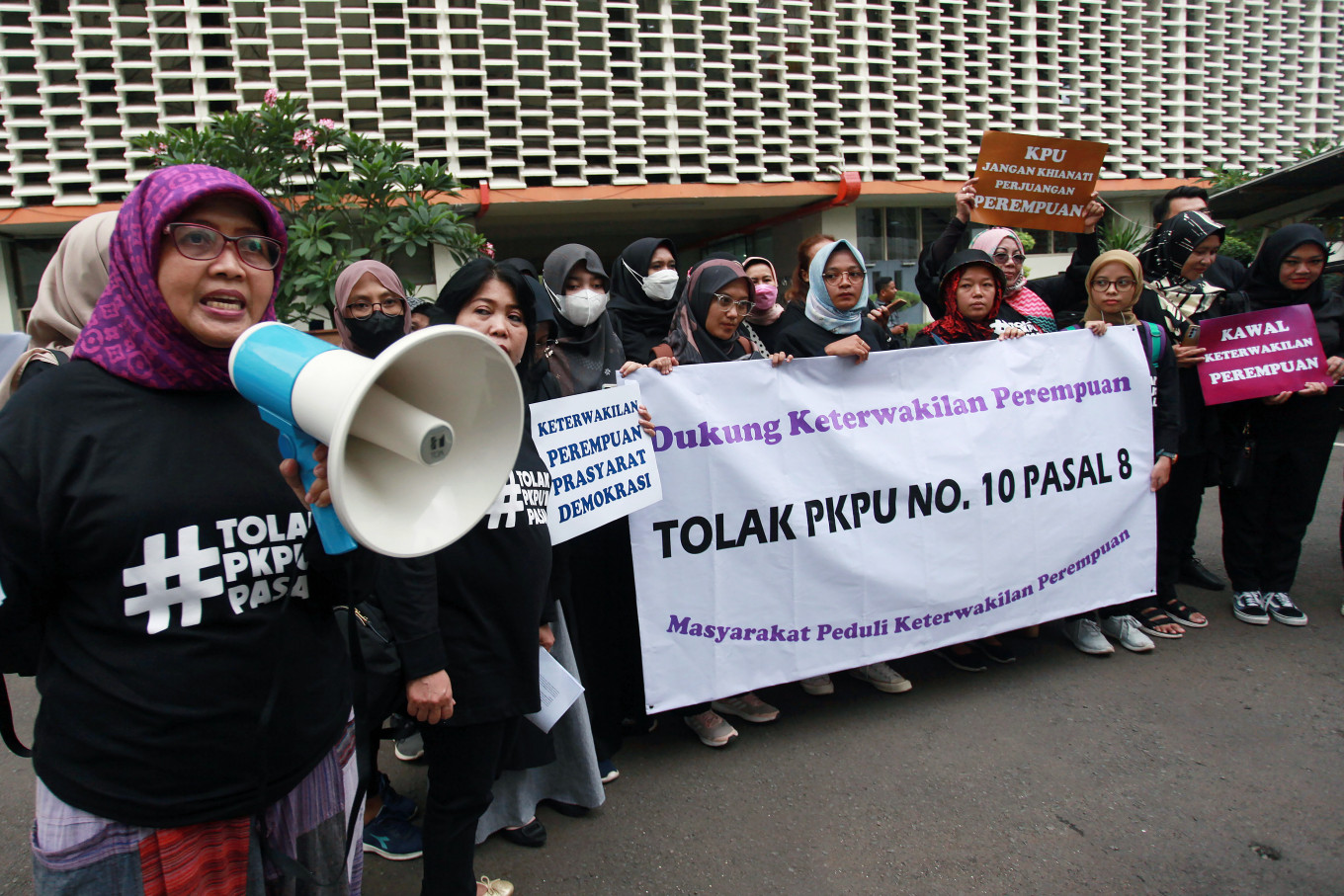KPU denies backroom deal on controversial rules
Activist group preparing to report commission to election ethics council.
Change text size
Gift Premium Articles
to Anyone


T
The election organizer found itself embroiled in yet another controversy after critics last week accused it of secretly slipping the "problematic" provisions into a KPU regulation (PKPU), which regulates the registration and eligibility of candidates running in the 2024 national and regional legislative elections.
The KPU enacted the regulation in mid-April following a series of informal closed-door meetings with House of Representatives Commission II overseeing home affairs.
In a major turnaround from the previous policy, the new regulation allows political parties to sign up former corruption convicts as legislative candidates without requiring them to wait five years after their release from prison. It has also eliminated a mandatory requirement for candidates to report their wealth.
Responding to the allegations on Saturday, KPU chairman Hasyim Asy’ari said the draft regulation had been put through "public consultation" for feedback from lawmakers and the government before it was issued.
“In making the regulation, the KPU has carried out public examination and consultation with policymakers – lawmakers and the government – during House hearings,” Hasyim said.

He added that the commission had taken into account the arguments the Constitutional Court issued with its decisions in 2022 and 2023 pertaining to next year’s elections. The court decisions barred former graft convicts from running for legislative seats until five years after their release from prison. The Constitutional Court also held that the five-year grace period would only apply to graft convicts who were not stripped of their right to run for public office as part of their punishment.
“The KPU did not secretly [include] any provisions in the regulation. It instead carried out something that is in line with the Constitutional Court’s rulings," Hasyim said.
Anticorruption activists and election watchdogs insisted that the KPU had only considered the court rulings in part.
“As a consequence of the new KPU rule, politicians who stand trial for corruption will hope that the judges will revoke their right to [stand for an election] for a period of less than five years,” said Kurnia Ramadhana of Indonesia Corruption Watch.
“Doesn’t that indicate the twisted logic of the KPU?” he added.
Kurnia also slammed the KPU for being permissive and accommodating of former graft convicts who sought a return to politics by contesting the 2024 elections, saying that the KPU had “violated the people's right to have representatives [who possess] integrity”.
Separately, the Corruption Eradication Commission (KPK) has urged the KPU to require all elected legislators to file their wealth reports before they are inaugurated and periodically during their terms as measures to prevent corruption.
Activists also called “discriminatory” another controversial provision in the new regulation referring to the method for calculating a party’s female representation per electoral district.
This provision prescribes rounding down the number of female candidates in an electoral district if the calculation results in a figure of less than five in the tenths decimal place.
Activists said this could result in female representation of less than the minimum 30 percent in both the national and regional legislatures, in direct contradiction to the 2017 General Elections Law.
The KPU initially said it would revoke the new regulation, but backpedaled earlier this month after House Commission II lawmakers expressed their unanimous disapproval of the plan.
A group of women’s rights activists said it would petition the Supreme Court to review the regulation if the KPU insisted on keeping the provision on rounding down per district numbers for female candidates.
Activist Titi Anggraini said the group was also preparing its arguments to report the KPU to the Election Organization Ethics Council (DKPP).
“The KPU has violated its oath and promise as an election organizer,” Titi said.
The allegations are the latest in a series of controversies around the KPU since last year, when it was accused of manipulating the registration and verification process for political parties and determining the eligibility of several newcomer parties, even though they failed to meet the requirements.









